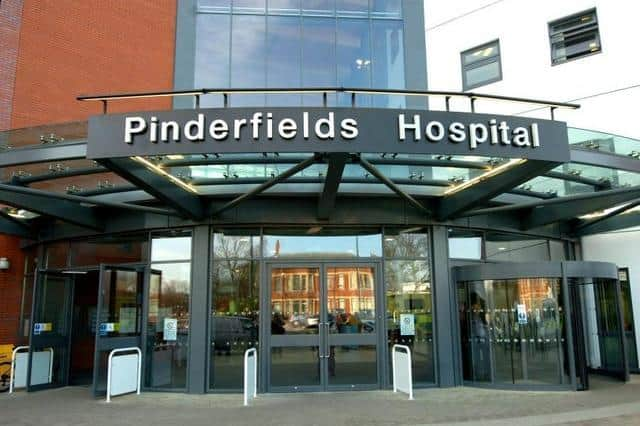Family of Pinderfields stroke patient awarded £500,000 over diagnosis delay that left him needing 24-hour care
and live on Freeview channel 276
The man, who was 48 at the time, has been left with severe health problems, including speech, language and memory issues, impaired dexterity in his upper limbs, strugges with balance and suffers falls. He also has abnormalities of eye movements and swallowing difficulties, requiring a soft diet.
The man was taken by ambulance to the Wakefield hospital seven years ago where he underwent a CT scan which showed signs of a basilar artery stroke - a rare form of stroke with a high mortality rate.
Advertisement
Hide AdAdvertisement
Hide AdBut the scan was reported as being normal by a radiologist, and following that error, it was a further three days before an MRI scan was taken, revealing multiple areas of blood tissue death and the artery blockage again.


The patient was then immediately transferred to Leeds General Infirmary for emergency surgery.
It was later determined that had the CT scan been properly interpreted, the patient would have been diagnosed and received emergency treatment to remove the blood clots within a matter of hours.
Although it was accepted he would still have suffered brain damage, it was alleged he would not have been left needing the same level of 24-hour supervision for his own safety, as he now does.
Advertisement
Hide AdAdvertisement
Hide AdMedical experts consulted as part of the case said he would likely have avoided some issues such as eye movement and other brainstem damage with quicker treatment, and therefore had something of an improvement in terms of his physical outcome, with a lower risk of falls.
The expert said: “In practical terms, I think this would have meant a quicker recovery and return home and would mean that he would have required support from his wife and family, but would not have needed 24 hours supervision.”
Vince Shore, joint head of clinical negligence at of Hudgell Solicitors, who took on the case, said: “There were a number of failings in care in this case which ultimately denied the patient the opportunity to make the best possible recovery from the very serious stroke he suffered."
In response, David Melia, director of nursing and quality, at the Mid Yorkshire Hospitals NHS Trust, which covers Pinderfields, said this week: “We offer our deepest sympathy and appreciate that this has been a very distressing time.
Advertisement
Hide AdAdvertisement
Hide Ad“In our own investigation, we recognised that errors occurred, and the treatment fell below the standard we aim to provide.
"We are truly saddened to hear of the impact and lasting effects our patient experienced since his stroke and the effect this has had on his family.
“We are committed to providing the best care we can to our patients and making improvements when this falls short. We have taken on board the learnings from this incident and our staff have worked hard to make improvements to our stroke services.”